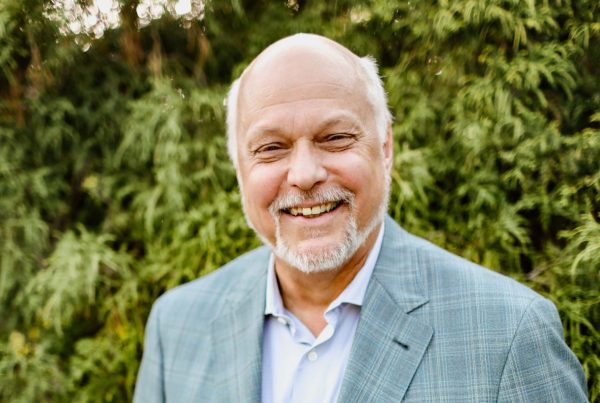The theme of this year’s International Open Access Week is “community over commercialization”. The OA Week 2023 Advisory Committee explains this is a time to discuss “which approaches to open scholarship prioritize the best interests of the public and the academic community—and which do not.” The UNESCO Recommendation on Open Science calls for the research community to prevent the “inequitable extraction of profit from publicly funded scientific activities” and support for “non-commercial publishing models and collaborative publishing models with no article processing charges.” What does this look like in practice?
Community
The idea of a “lone genius” making breakthroughs in the lab is rarely how things work in real life. As researchers, we build off the work of other scholars in our fields—often by sharing our work in scholarly publications. Our disciplinary communities are often formed around journals and scholarly societies. Being able to publish our research is essential to the development of our field. When systems are set up that prevent authors from sharing work and ideas—by preventing researchers from accessing the latest research or preventing them from publishing in their disciplines’ journals by charging fees—the community loses.
Commercialization
Scholarly publishing of journals began in the 17th century. Philosophical Transactions of the Royal Society is the longest running journal, having started in 1665. Its mission was to ensure that research was widely available. Sharing was limited by the need to print and mail physical copies to people, but in many cases issues were given away for free, building a community that ranged beyond scholars in London or England alone. (For more on this see Chapter 9 of Reassembling Scholarly Communications or Untangling academic publishing: A history of the relationship between commercial interests, academic prestige and the circulation of research.) Practices have varied a lot in the hundreds of years since, but in the last 70 years, scholarly publishing has become increasingly commercialized. The prices for subscriptions to journals continue to skyrocket, along with commercial publisher profits, which are regularly above 35%.
Open Access publishing—which does not always require author fees (APCs)–has the potential to make all research available to anyone with an internet connection. This can open up the research community to include people with different perspectives, from different social locations and different parts of the world. Expanding the community can both bring research to populations previously excluded, and enrich research with new perspectives and different ways of knowing. Yet, by allowing commercial interests to play such a large role in publishing, we lose out on building these expanded connections.
In a few examples from just the last two years, publishers have
- Refused to reduce their article processing charge (APC), despite the journal’s editors’ goals to have a model that includes all researchers, not just those who can afford to pay
- Told a journal’s editorial board that they need to increase their publication output by a factor of 10 (or seven-fold) to stay “profitable”
- Fired an editor-in-chief, who had announced his intention to resign due the publisher’s actions, four months early
- Pushed a journal—one focused on reducing inequalities in public health—to move to an APC-based OA model.
- Implemented AI tools “to help” editors, but which instead “erode, deskill and degrade core academic activities” and remove community aspects of scholarly communications such as editors working directly with junior scholars to improve submitted articles.
Community taking back control
Commercial publishers hold a great deal of power: the largest five publish more than 50% of all articles. But researchers are taking actions to bring control of their journals back to the community. They have raised awareness about the dangers of introducing AI into the editorial process. They have organized boycotts and mass resignations:
- Associate editors of Journal of Biogeography stopped work to protest the way OA was being implemented—with a high APC and demands from their publisher to prioritize quantity (revenue) over quality.
- Associate editors of the Journal of Political Philosophy resigned, en masse, in solidarity with their editor-in-chief, who was fired by the publisher.
Other communities have gone farther—going on to form new, independent journals
- The editorial board of NeuroImage left their commercial publisher to form Imaging Neuroscience after their publisher refused to lower their APC from $3,450 Now being published by MIT Press, they have set their APC at $1600.
- The editorial board of Critical Public Health left their commercial publisher for the Journal of Critical Public Health, a diamond OA journal that charges neither readers nor authors, hosted by the University of Calgary Libraries.
These are just a few of the latest examples of the community forming new journals when their values do not align with their commercial publisher.
Community over commercialization at the Libraries
The University of Minnesota Libraries supports academic-led publishing. For the last 15+ years, we have critically assessed and engaged around these issues, including education and outreach across UMN campuses and beyond, development of programming and projects, and partnerships with organizations nationally and internationally. More recently, we articulated our OA principles (z.umn.edu/TowardsOA), outlining our beliefs around true transformation of the scholarly publishing system, which we believe should
Support academy-owned publishing infrastructure so that scholars and academic organizations are in control of production
These principles and beliefs drive our ongoing work around open access issues. We invest in publishing (check out the great works from Libraries Publishing Services!), academic community-led journals, scholar-owned infrastructure,, and organizations that promote and provide essential infrastructure to support the transition to open access.”Community over commercialization” is the theme for OA Week this year, but these ideas have driven the Libraries engagement on these issues for a long time, and we will continue to support community-led efforts next year and beyond!




